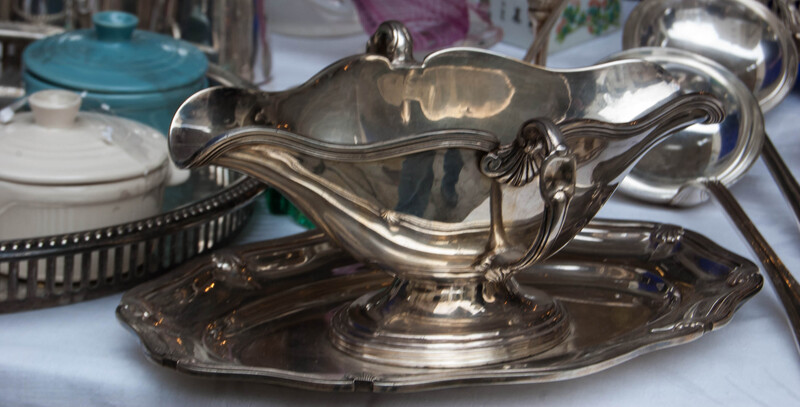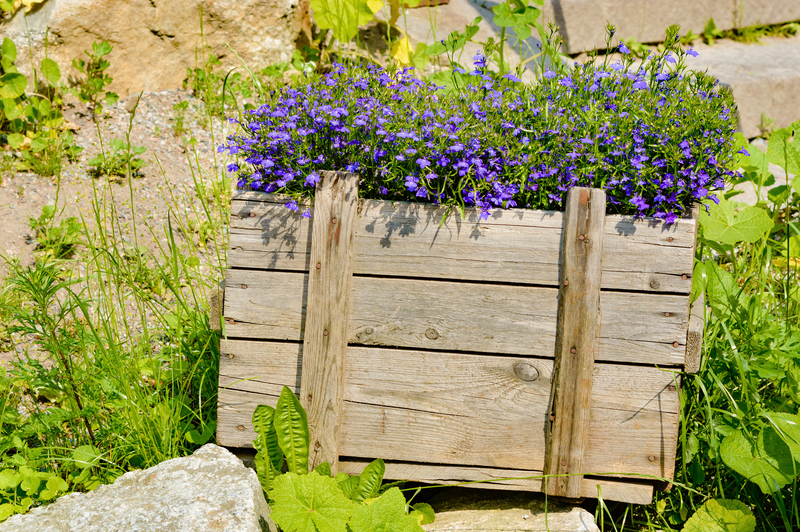Sustainable Solutions for Unused Pots and Pans
In our fast-paced world, unused pots and pans often accumulate in kitchens and cabinets, forgotten or replaced by newer models. However, simply discarding old cookware contributes to environmental waste. Instead, there are numerous sustainable and creative ways to give your pots and pans a second life. This comprehensive guide will explore innovative, eco-friendly solutions to repurpose, recycle, and responsibly handle your unused cookware.
Why Choose Sustainable Solutions for Old Cookware?
Every year, millions of kitchen items, including pots and pans, end up in landfills. Traditional cookware is often made from metals and materials that do not decompose easily, resulting in long-term environmental impact. By seeking sustainable alternatives, you not only reduce your ecological footprint but also inspire others to adopt environmentally friendly habits.
- Reduces Landfill Waste: Recycling or repurposing prevents unnecessary accumulation.
- Conserves Resources: Many metals in cookware are resource-intensive to mine and manufacture.
- Promotes Creativity: Finding solutions for unused kitchen items fosters creativity and innovation.
- Supports Community: Donations can benefit local communities and charitable organizations.

Assessing the Condition of Your Old Pots and Pans
Before choosing a sustainable solution for your unused pots and pans, it is important to inspect their condition. This step determines whether they can be reused, donated, upcycled, or recycled.
Checklist for Assessing Cookware:
- Intact Handles and Lids: Are they functional and secure?
- Nonstick Surfaces: Is there significant scratching or peeling?
- Rust or Corrosion: Is the metal compromised?
- Structural Integrity: Are there cracks, dents, or warping?
Note: Cookware in good condition may find new life in another kitchen, while damaged items might be better suited for recycling or upcycling projects.
Creative Upcycling Ideas for Unused Pots and Pans
Upcycling involves creatively transforming old items into new, useful objects. Repurposing unused cookware is not only sustainable, but it also adds a unique charm to your living space. Here are some popular and innovative options:
1. Planters and Garden Decorations
- Turn saucepans into planters: Drill holes for drainage and fill with soil and your favorite plants or herbs.
- Use large pots for container gardening: Perfect for flowers or even small vegetable gardens.
- Hanging gardens: Attach chains and hang frying pans as vertical plant displays.
Tip: Painting or decorating your planters can match any garden theme and protect against weathering.
2. DIY Home Decor
- Clock faces: Turn a metal pan into a quirky wall clock.
- Wall art: Group different-sized pots and pans for a unique art installation.
- Candle holders: Use smaller pans as bases for homemade candles.
This approach adds a personalized, rustic touch to your home and embodies the spirit of eco-friendly living.
3. Storage and Organization Solutions
- Use deep pots for storage bins: Perfect for desk supplies, kitchen utensils, or kids' toy storage.
- Magnetic pan lid holder: Attach to a wall for a creative key or accessory organizer.
Utilizing unused pans in clever ways reduces the need for new plastic storage solutions and keeps clutter at bay.
Donating Unused Pots and Pans
If your cookware is still in good working condition, donation is a valuable sustainable solution. Many organizations and individuals are in need of kitchen supplies. Donating helps reduce waste and supports those less fortunate.
Places to Donate Old Cookware:
- Local charities and shelters
- Community centers
- Thrift stores and second-hand shops
- Universities for students in need of kitchenware
Contact the organization first to confirm their acceptance of second-hand cookware, and ensure items are clean and safe to use before donation.
Recycling Old Pots and Pans Responsibly
Some pots and pans may no longer be suitable for use or repurposing, but that doesn't mean they belong in a landfill. Recycling cookware is a more sustainable solution for metal waste.
Types of Cookware Materials and Recycling Options:
- Aluminum and Stainless Steel: Most metal recycling facilities accept these materials; separate from non-metal parts.
- Cast Iron: Highly valuable for scrap metal collectors.
- Copper: Remove any plastic handles and lids to maximize recyclability.
- Nonstick Pans: Special recycling processes may be required due to coatings; contact your local recycling facility for guidance.
Many municipalities offer drop-off locations or special recycling programs for metals. Always check local guidelines before disposal.
Hosting a Cookware Swap or Community Giveaway
Community events such as cookware swaps are powerful ways to keep items in circulation and reduce overall waste. Bring your unused pots and pans to a local swap meet or organize an event yourself:
- Gather neighbors or friends and set up a swap table.
- Advertise online on social media groups or community boards.
- Ensure all donated items are clean, functional, and safe to use.
This fosters community engagement, reduces buying new items, and promotes sustainable living through shared resources.
Repurposing Cookware for Educational and Craft Projects
Unused pots and pans can also serve as valuable educational tools and art project materials. Schools, community organizations, and art programs often appreciate the donation of kitchen items for a variety of activities:
- Music and percussion instruments from old metal pans (great for classrooms!)
- Science experiments using pots for water and heat demonstrations
- Craft foundations for mosaics, sculpture, or other creative projects
Repurposing in educational settings encourages resourcefulness and sustainability from a young age.
Upcycling Cookware in the Workshop or Garage
Many unused pans and pots are sturdy and durable, making them ideal for a variety of household or workshop uses:
- Organizing small tools and hardware
- Mixing paints or DIY materials
- Clay or pottery projects that require robust containers
By giving cookware a new purpose, you reduce reliance on single-use plastics or new materials, extending the product lifecycle in an eco-friendly manner.
How to Prepare Your Old Cookware for Repurposing or Donation
Whether you're donating, recycling, or upcycling pots and pans, it's important to prepare them properly:
- Thoroughly clean all cookware with soap and hot water.
- Remove loose parts: Disassemble handles or lids if required by the recycling facility.
- Check for hygiene: Ensure items are sanitary, especially if donating to a charity or school.
- Label materials if possible--information on type of metal or coating can be useful for recipients.
Choosing Eco-Friendly Cookware to Avoid Future Waste
Adopting sustainable solutions does not end with unused pots and pans. Consider these tips for future cookware purchases that minimize waste:
- Opt for durable materials: Stainless steel, cast iron, and fully recyclable aluminum are long-lasting choices.
- Repair rather than replace: Many parts (like handles or lids) can be easily fixed.
- Avoid nonstick coatings that can degrade over time--choose ceramic or seasoned surfaces instead.
- Invest in multi-functional cookware to reduce the number of items you'll eventually need to dispose of.
Mindful shopping can significantly reduce kitchenware waste and contribute to more sustainable living in the long term.

Frequently Asked Questions on Sustainable Disposal of Cookware
Can I put pots and pans in my curbside recycling?
Not all curbside recycling programs accept large metal household items. Most require you to take cookware to a designated metal recycling facility. Always check your local municipal guidelines.
What should I do with nonstick pans?
Due to their chemical coatings, nonstick pans typically need to be recycled through special programs. Alternatively, they can be upcycled for non-food purposes, such as planters or craft projects.
Are any parts of old pots and pans unsafe to reuse?
If cookware is heavily rusted, chipped, or has chemical coatings flaking off, avoid using it for food. These items are better off recycled or used for non-consumable upcycling projects.
Can cookware be donated if it's a little worn?
Yes, as long as the pots and pans are clean, safe, and functional. Many organizations accept gently used items, particularly if they still have life left in them.
Conclusion: Embracing Sustainable Solutions for Cookware
Unused pots and pans don't have to end up in landfills. By embracing sustainable solutions for old cookware, you contribute to environmental protection, support your community, and unlock creative potential in your daily life. Whether through upcycling, donating, recycling, or repurposing, every action makes a positive impact. The next time you find yourself with unused kitchenware, try one of these eco-friendly ideas and join the movement for a cleaner, greener future.
Remember: Sustainable living starts at home -- and every small step counts.